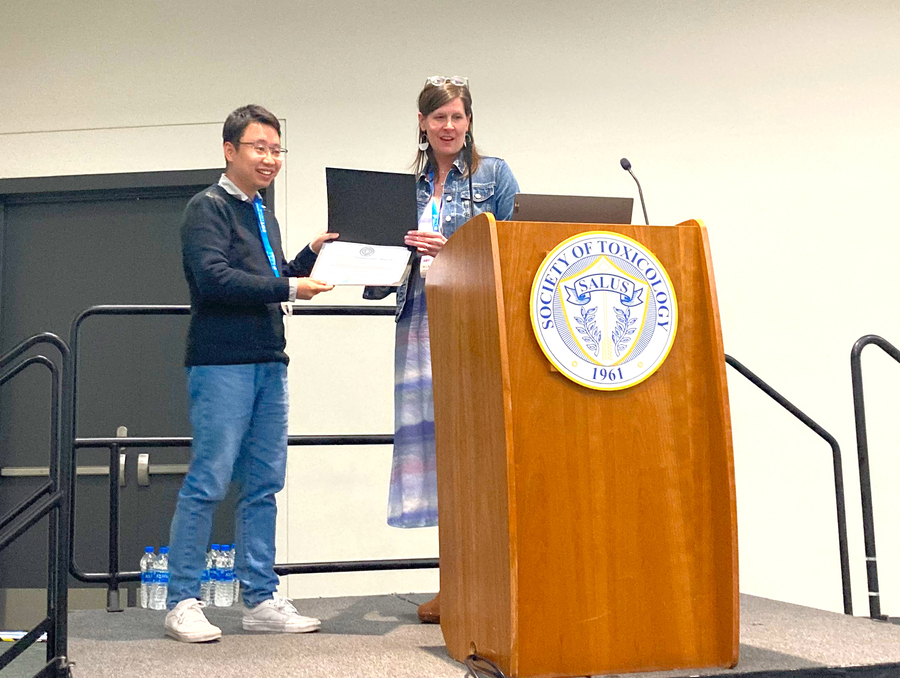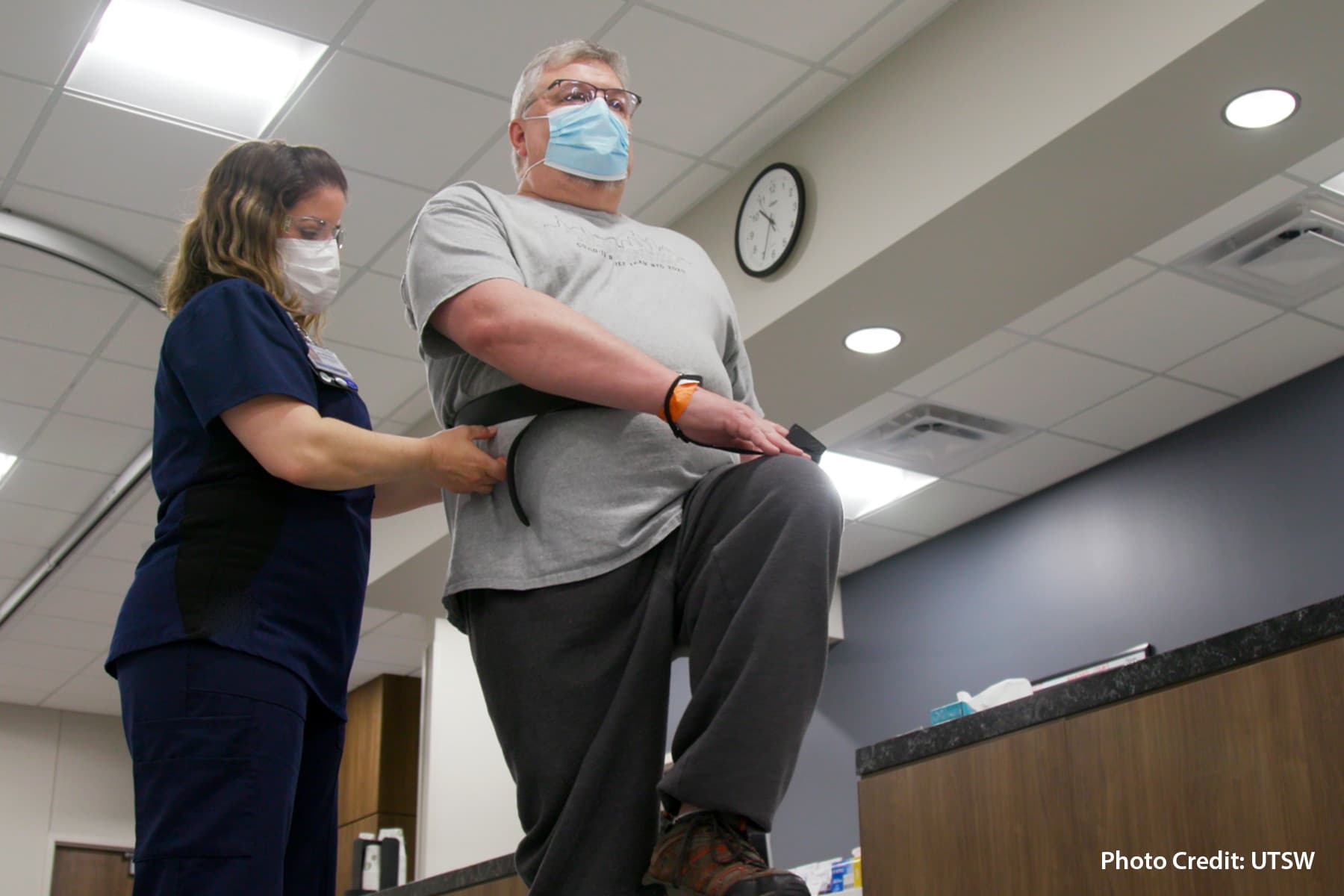[ad_1]
Dr. Li Li, Assistant Professor at the School of Public Health, was awarded the “2022 Best Paper in Exposure Science – Runner Up” award at the Society of Toxicology 61st Annual Meeting and ToxExpo that took place in San Diego, March 27 – 31, 2022 for his research on holistic, mechanistic modeling framework for ecological and human health assessments to support the safe and sustainable production, use and disposal of organic chemicals. Dr. Li Li’s research was also published in Environmental Health Perspectives, one of the most regarded journals in environmental health.
Dr. Dingsheng Li and Dr. Li Li also presented a poster on Inter-Individual Variability and Non-linear Dose-Response Relationship in Assessing Human Health Impact From Chemicals in LCA: Addressing Uncertainties in Exposure and Toxicological Susceptibility. The poster won the “Risk Assessment Specialty Section 2022 Top 10 Best Abstract Award” and is being displayed in the Lombardi Recreation Center.
Li Li is an environmental modeler in the inter-discipline of environmental chemistry, industrial ecology, and exposure and health sciences. His research seeks to understand the accumulation, transport, transformation of synthetic chemicals (e.g., flame retardants, plasticizers, pesticides, and surfactants) and materials (e.g., nanomaterials and microplastics) in a nexus comprising the human socioeconomic system, environment and food webs, as well as the resulting adverse environmental and health effects. He strives to establish, foster, maintain and promote a variety of mechanistically sound and computationally effective models, to advance our thinking and understanding of the behavior and processes of synthetic chemicals and materials and meanwhile to inform decision making.
Dr. Dingsheng Li’s research is on assessing human exposure to chemicals and resulting health risks with various models. He believes by developing these models we can highlight chemicals that could result in significant health risks and provide insights for decision makers to allocate resources to safeguard the health of our society more efficiently. He is especially interested in using physiologically based pharmacokinetic models to explore the link between external exposures and internal doses. His past and current focus is on nanoparticles and chemicals in consumer products. He is also involved in the development and practice of Life Cycle Impact Assessment, which considers the whole life cycle – raw material extraction, manufacturing, packaging, transportation, use, and disposal – of products and evaluates the associated impacts.
[ad_2]
Source link



